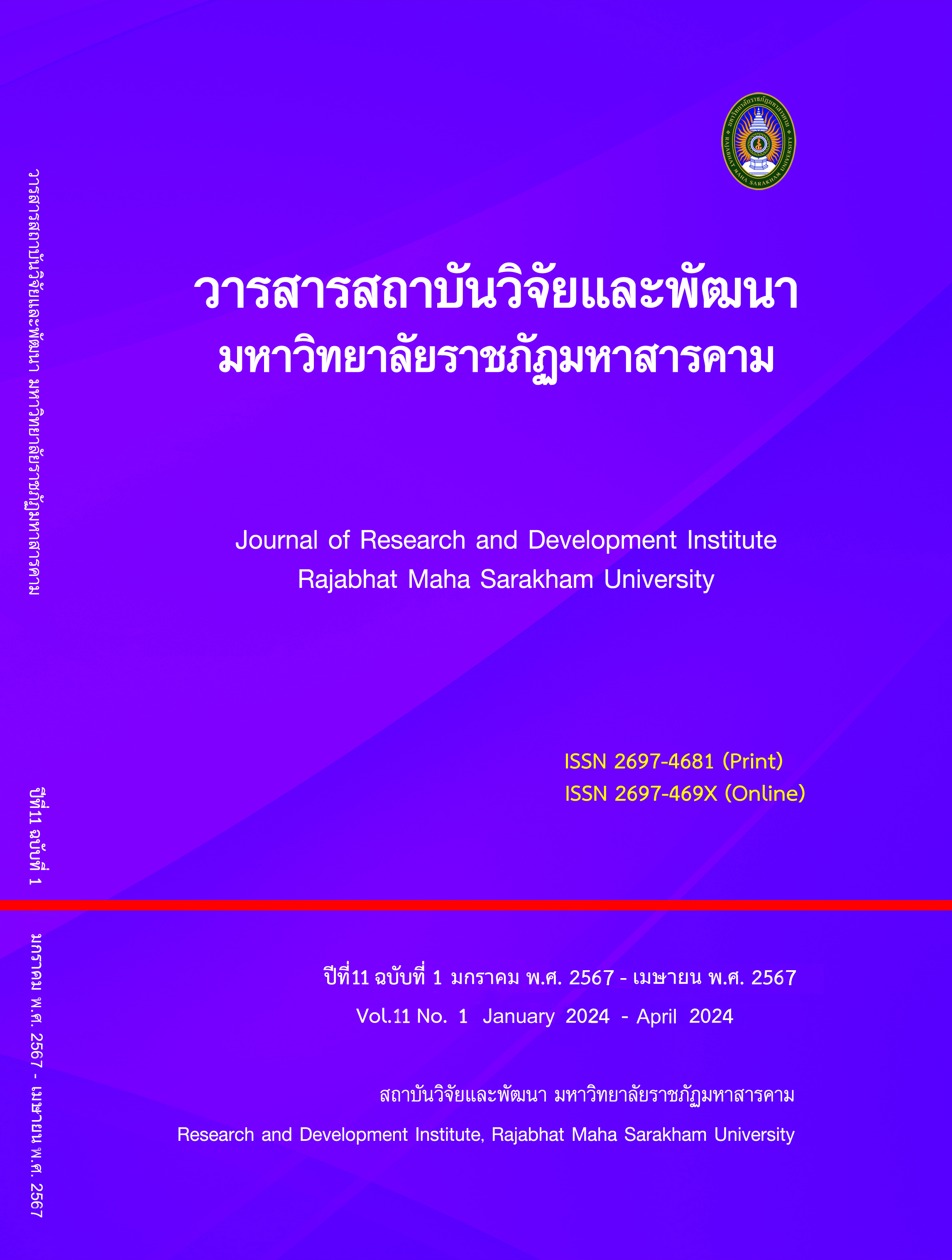A Competency-Based Non-Degree Curriculum on Growing Safe Vegetables to Promote Smart Farmer Agriculture
Keywords:
non-degree competency-based curriculum, module, GAP standard, smart farmerAbstract
The competency-based non-degree curriculum on growing safe vegetables to promote smart farmer agriculture was constructed and developed with participation of 3 partners of the New Breed Graduate Production Project. The curriculum is of the non-degree type. It has received a research fund from the Higher Education Manpower Production and Development Promotion Group, Manpower Promotion and Development Division, Ministry of Higher Education, Science, Research and Innovation (MHESI), and the implementation of the curriculum was approved by the New Breed Graduate Production Project. The objectives of the curriculum are: 1) to study the results of the farmers’ practice in growing safe vegetables that is certified as having agricultural commodity standard according to the principles of Good Agricultural Practices (GAP); 2) to study the results of the farmers’ practice in safe vegetable processing which has products with comercial value added for the smart farmer. The instruction employed 3 modules. Module 1: Re-Skill —plant production according to the principle of GAP. Module 2: UP-Skill —growing safe vegetables according to the agricultural commodity standards of GAP. Module 3: Up-Skill —growing safe vegetables that develops the famer into a smart farmer. The allotted time for learning is 285 hours, 60 hours for theory and 225 hours for practice. The target group comprises 50 farmers from Ban Pho-ngoen, Village No. 13, Na Si Nuan Sub-district, Phayakkhaphum Phisai District, Mahasarakham Province. The research instruments are: 1) a learner’s competency assessment form on the body of knowledge, practical skill and attitude for the competency-based non-degree curriculum on growing safe vegetables to promote smart farmer agriculture; 2) a questionnaire on growing safe vegetables according to the standards of plant commodity of GAP to develop smart farmers; 3) an application form for plant production site of GAP (for sole farmer); 4) an assessment record for plant production site of GAP according to agricultural commodity standards (TAS): good agricultural practices for food crops. The statistics employed in the analysis of data were the mean () and standard deviation (S.D.). The research results are presented in tables and descriptive analysis.
The results are as follows:
1) The study on the 50 farmers’ practice in growing safe vegetables revealed that 46 farmers, or 92 %, were certified as having agricultural commodity standard according to the principles of Good Agricultural Practices (GAP). Their practice was in accordance with the Good Agricultural Practices for Food Crops (TAS).
2) The study on the farmers’ practice in safe vegetable processing which has products with comercial value added for the smart farmer revealed that the 50 farmers were able to apply their knowledge, skill and attitude in safe vegetable processing and could produce 12 products with commercial value added, and they could decrease the expense on their own vegetable consumption for 7,250 baht in each production round. From the cost of production of 41,450 baht, the products weighed 2,432 kilograms and were sold for 74,540 baht. The profit was 40,440 baht. When the farmers finished the third module, they were able to pass the smart farmer’s standards on 6 aspects. However, 42 of the 50 farmers, or 92%, could be developed into a smart farmer who grows safe vegetables according to the GAP standards.
References
Bureau of Agricultural Extension. (2013). Knowledge about production towards intelligent agents of plant propagation. Bangkok : Ministry of Agriculture and Cooperatives.
Bureau of Agricultural Extension. (2015). Ordinary home department store. Bangkok: Ministry of Agriculture and Cooperatives.
Department of Community Development. (2022). Principles of vegetable gardening. Bangkok: Ministry of Beach.
Kaewthep, K. (1986). The loss of riches and the loss of riches of the state. Louis Althusser. Bangkok: Institute of Social Research. Chulalongkorn University.
Ondam, B. (1987). Next. Bangkok: Office of Planetary Defense for Planets.
Sitathani, K. (1999). Vegetables in the home garden. Bangkok : M.P.
Srisa-ard, B. (2013). Preliminary research. Maha Sarakham: Aphichat Printing.
Wasi, P. (1987). Recently, Thailand for development. Bangkok : Amarin Printing Group.
Wiiwat, S. (1999). Theory of social development strategies. Bangkok: Chulalongkorn University Publishing House. Mueang Sa Kaeo Province.
Downloads
Published
How to Cite
Issue
Section
License
Copyright (c) 2024 ประสพสุข ฤทธิเดช, สายใจ เพ็งที, สราวุฒิ ดาแก้ว, เกรียงไกร นามนัย, สุนทรีย ไชยปัญหา

This work is licensed under a Creative Commons Attribution-NonCommercial-NoDerivatives 4.0 International License.
Articles that are published are copyrighted by the authors of the articles







